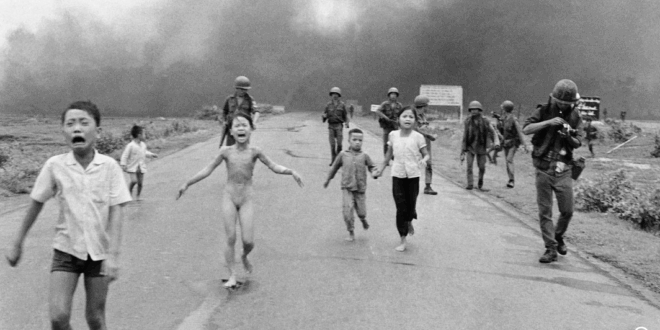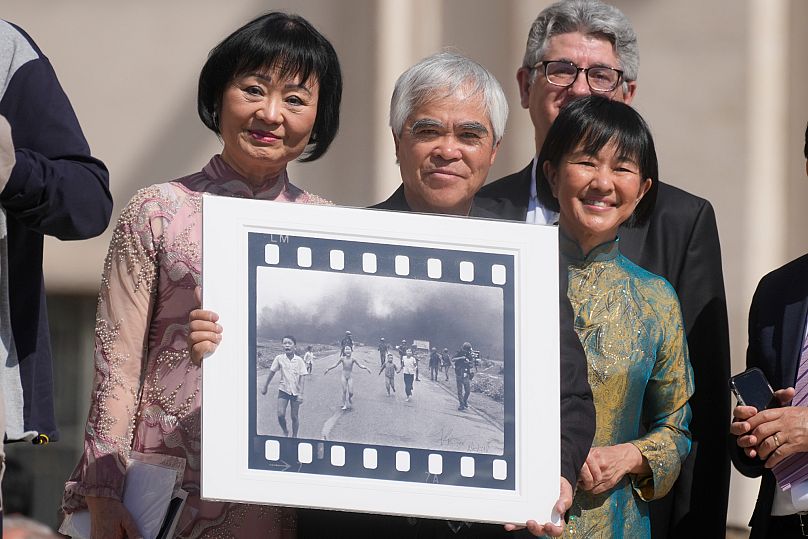Muhamad Yehia.. Cairo
The haunting image, seen around the world and hailed as a defining symbol of the Vietnam War’s horrors, is once again under scrutiny as questions resurface about who actually took the photograph.
More than 50 years after Nick Ut’s Pulitzer Prize-winning image of a nine-year-old Phan Thi Kim Phuc fleeing a napalm attack in the South Vietnamese village of Trảng Bàng, a prestigious photography organisation has cast fresh doubt over who actually took it.
World Press Photo, which awarded the image its 1973 Photo of the Year, recently announced that it has suspended its attribution to Ut, following the release of a new documentary, The Stringer, that challenges the long-accepted account of the photo’s origins.
The organisation said its independent investigation raised questions regarding Ut’s role and suggested that two Vietnamese photographers, Nguyen Thanh Nghe – highlighted in The Stringer – and Huynh Cong Phuc, may have been better positioned to take the image.
The Stringer, which premiered at Sundance in January earlier this year, claims Nghe sold the photo to AP’s Saigon bureau chief for $20 and a print, and forensic experts from the French NGO Index also weighed in, concluding it’s “highly unlikely” that Nick Ut took the photo based on comparisons with other images credited to him that day
“We conclude that the level of doubt is too significant to maintain the existing attribution,” said Joumana El Zein Khoury, executive director of World Press Photo. “At the same time, lacking conclusive evidence pointing definitively to another photographer, we cannot reassign authorship, either.”
Ut will not be asked to return his cash prize from the World Press Photo 1973 Photo of the Year.
?What do the Associated Press have to say on the matter
The Associated Press, where Ut worked at the time, have said that after conducting two internal investigations it couldn’t find any definitive proof to strip Ut’s credit and no compelling evidence anyone else took the photo.
“We understand World Press Photo has taken different action based on the same available information, and that is their prerogative,” the statement said. “There is no question over AP’s ownership of the photo.”
 موقع وجه أفريقيا موقع وجه أفريقيا هو موقع مهتم بمتابعة التطورات في القارة الأفريقية
موقع وجه أفريقيا موقع وجه أفريقيا هو موقع مهتم بمتابعة التطورات في القارة الأفريقية




